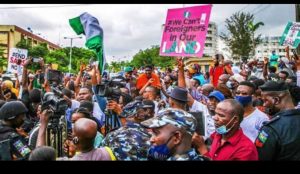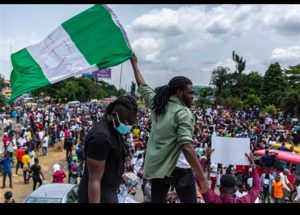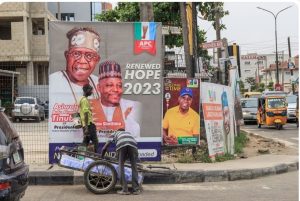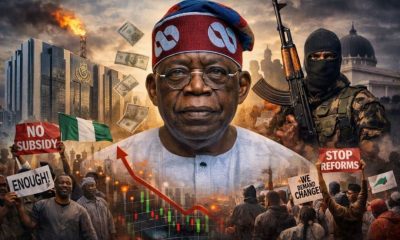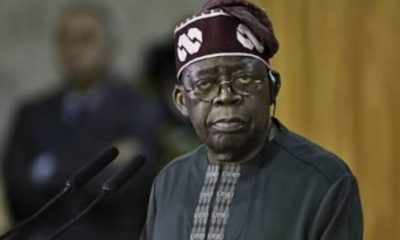Business
Tinubu’s Economic Agenda in Crisis: North-South Divide Strikes Again
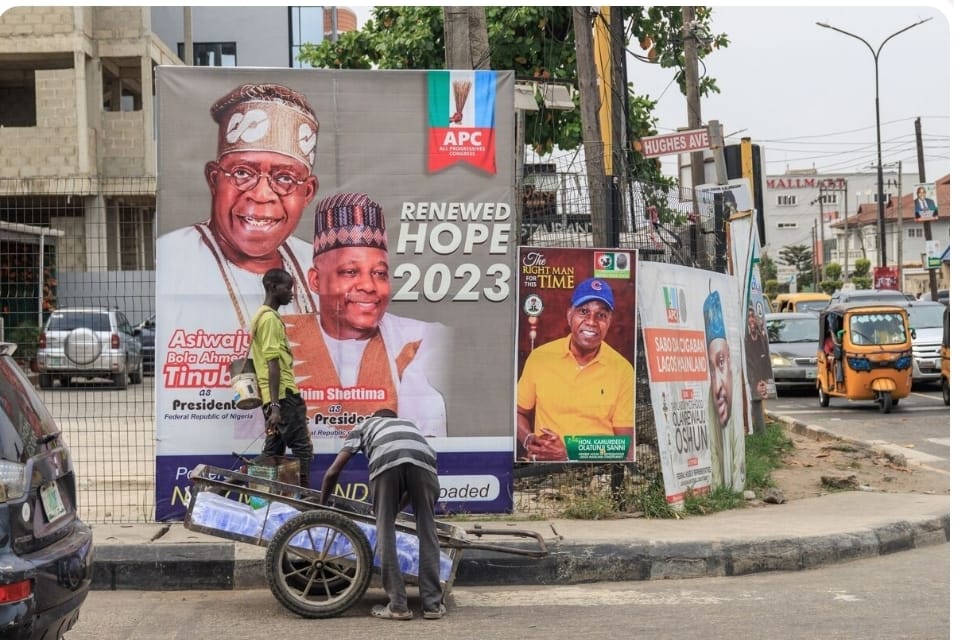
Tinubu’s Economic Agenda in Crisis: North-South Divide Strikes Again
By George Omagbemi Sylvester
President Bola Ahmed Tinubu, elected in 2023 on the wings of political calculation and elite manipulation, has now found himself caught in the snare of Nigeria’s enduring historical curse: the north-south divide. His ambitious economic reform agenda, intended to liberalize the economy, remove structural inefficiencies, and reduce government expenditure—has hit a legislative wall. But this isn’t just about policy. This is about power, patronage, and the ancient scars of a fractured federation.
The rejection of critical aspects of Tinubu’s economic proposals by lawmakers is a stinging rebuke, not only to his administration but to the very idea that Nigeria can be reformed from the top down without confronting its structural imbalances. In many ways, Tinubu’s presidency is now facing the same nightmare that has haunted every Nigerian leader since independence: how do you govern a country that was never truly united?
The Crumbling Reform Agenda
At the center of the storm is Tinubu’s proposal to centralize and streamline federal subsidies and remove what he termed “wasteful duplication of agencies.” This was meant to continue the subsidy removal narrative started in June 2023, and reduce fiscal leakage. However, the backlash, particularly from legislators representing the northern states, was swift and coordinated.
The northern bloc, comprising lawmakers from Kano, Katsina, Kebbi, Sokoto, and Borno, objected on the grounds that Tinubu’s proposals disproportionately affect their regions, where federal allocation remains a critical lifeline in the absence of strong internally generated revenue. But critics argue this is a strategic form of sabotage, aimed at retaining an unsustainable status quo that prioritizes political patronage over national progress.
As Prof. Wale Adebanwi of Oxford University has argued, “Nigeria’s northern elite have historically benefited from the spoils of a rentier state, with oil wealth redistributed without the burden of productive contribution. Any move to reverse this equation is seen as existential.”
Tinubu, a southerner from Lagos, with strong Christian support from the Southwest and Southeast, is now facing the very brick wall that has impeded reforms since the First Republic. His own political survival now depends on how much compromise he’s willing to make—or whether he can break the mold entirely.
A Century-Old Fracture
The rejection of Tinubu’s reforms by northern lawmakers is not new. It is deeply rooted in a century-old tension embedded in the structure of the Nigerian state. The 1914 amalgamation, engineered by British colonialists, fused two vastly different regions, the industrializing, Western-educated Christian south and the feudal, Islamic north, into one artificial political entity.
From independence in 1960, this contradiction has remained unresolved. “Nigeria was created not to function as a cohesive nation, but as an economic convenience for its colonial masters,” noted historian Max Siollun. “What we’re seeing is the consequence of a nation built on convenience rather than consensus.”
The economic priorities of the north and south remain deeply divergent. While the south boasts ports, oil revenue, industries, and a growing tech sector, the north has remained largely agrarian, dependent on federal allocations and political appointments. Any attempt to tamper with this redistribution—whether via subsidy removal or cuts in federal spending, provokes immediate resistance.
Reform vs. Redistribution
Tinubu’s administration promised reforms: subsidy removal, tax reform, and investment in critical infrastructure. But all reforms require sacrifices, and those sacrifices must be nationally distributed to succeed. What Tinubu is discovering, painfully, is that reforms without inclusive buy-in are dead on arrival.
Economist Dr. Obiageli Ezekwesili captured the challenge succinctly: “Nigeria’s political economy is structured around the sharing of oil rents, not the creation of wealth. Any attempt to disrupt this structure will provoke fierce opposition from those who depend on the current dysfunction for survival.”
Indeed, the loudest resistance to Tinubu’s reforms has come not from the opposition PDP or Labour Party, but from within his own APC, particularly from northern senators and representatives who feel alienated by the president’s southern-centric economic vision.
The Ghost of Buhari
Many Nigerians are now drawing comparisons between Tinubu’s presidency and that of his predecessor, Muhammadu Buhari, a northern Muslim who governed with overwhelming support from the north. Buhari’s policies favored heavy spending, a bloated civil service, and minimal economic restructuring, a model that created illusions of stability while deepening the economic rot.
“Buhari governed like a tribal chief, rewarding loyalty over competence, and expanding a culture of dependency,” said Prof. Kingsley Moghalu, former Deputy Governor of the Central Bank. “Tinubu’s efforts to break away from that legacy will require courage, strategy, and above all, an appeal to national interest.”
But appealing to national interest in Nigeria is easier said than done. The political class thrives on division. The north fears marginalization, the south resents over-centralization, and the middle belt remains trapped in identity crises. Tinubu, in failing to build a coalition around his reforms, is now paying the price of elite disunity.
The Danger of Ethno-Political Paralysis
The rejection of Tinubu’s agenda is not just a political problem, it is an economic time bomb. Nigeria is drowning in debt, with over 90% of its revenue now going to debt servicing. Inflation is running rampant, the naira has crashed, and unemployment remains alarmingly high. The country cannot afford to maintain the current level of government spending without reform.
But if every economic policy must first pass the tribal test, then reform is doomed. “A nation that filters every economic decision through the lens of ethnicity is a nation marching toward collapse,” warned Nobel Laureate Wole Soyinka. “If Nigeria cannot rise above its primordial divisions, it cannot survive the 21st century.”
What Next for Tinubu?
Tinubu’s next steps are critical. Will he revise his reforms to appease northern lawmakers and keep the political peace? Or will he double down, use executive power, and mobilize the Nigerian people behind a populist push for structural change?
There is a middle path, dialogue, renegotiation of the federal structure, and regional empowerment. Many have called for fiscal federalism, where regions generate and control their own revenues, sending only a fraction to the center. This model, already practiced in countries like Canada and the United States, could reduce the perennial tension around federal allocation.
Political economist Ayo Teriba suggests, “Nigeria must move away from revenue-sharing to revenue-generation. That shift requires not just policy but a new national consensus, and that is where Tinubu must lead.”
In conclusion: Lead or Collapse
President Tinubu is at a crossroads. He can continue playing the dangerous game of balancing regional interests with national imperatives, or he can rise above the tribal chessboard and lead with boldness. The north-south divide is not just a historical relic, it is a living cancer that must be addressed through structural reform, not rhetorical appeasement.
The economic reform agenda is not a southern agenda. It is a Nigerian necessity. If lawmakers continue to sabotage reform because it threatens their regional comfort zones, then the entire nation will suffer. As the saying goes, “A house divided against itself cannot stand.”
In the end, Tinubu must decide: will he be a president of compromise, or a reformer of consequence?
Business
Nigeria’s Inflation Drops to 15.10% as NBS Reports Deflationary Trend

Nigeria’s headline inflation rate declined to 15.10 per cent in January 2026, marking a significant drop from 27.61 per cent recorded in January 2025, according to the latest Consumer Price Index (CPI) report released by the National Bureau of Statistics.
The report also showed that month-on-month inflation recorded a deflationary trend of –2.88 per cent, representing a 3.42 percentage-point decrease compared to December 2025. Analysts say the development signals easing price pressures across key sectors of the economy.
Food inflation stood at 8.89 per cent year-on-year, down from 29.63 per cent in January 2025. On a month-on-month basis, food prices declined by 6.02 per cent, reflecting lower costs in several staple commodities.
The data suggests a sustained downward trajectory in inflation over the past 12 months, pointing to improving macroeconomic stability.
The administration of President Bola Ahmed Tinubu has consistently attributed recent economic adjustments to ongoing fiscal and monetary reforms aimed at stabilising prices, boosting agricultural output, and strengthening domestic supply chains.
Economic analysts note that while the latest figures indicate progress, sustaining the downward trend will depend on continued policy discipline, exchange rate stability, and improvements in food production and distribution.
The January report provides one of the clearest indications yet that inflationary pressures, which surged in early 2025, may be moderating.
Bank
Alpha Morgan to Host 19th Economic Review Webinar

Alpha Morgan to Host 19th Economic Review Webinar
In an economy shaped by constant shifts, the edge often belongs to those with the right information.
On Wednesday, February 25, 2026, Alpha Morgan Bank will host the 19th edition of its Economic Review Webinar, a high-level thought leadership session designed to equip businesses, investors, and individuals with timely financial and economic insight.
The session, which will hold live on Zoom at 10:00am WAT and will feature economist Bismarck Rewane, who will examine the key signals influencing Nigeria’s economic direction in 2026, including policy trends, market movements, and global developments shaping the local landscape.
With a consistent track record of delivering clarity in uncertain times, the Alpha Morgan Economic Review continues to provide practical context for decision-making in a dynamic environment.
Registration for the 19th Alpha Morgan Economic Review is free and can be completed via https://bit.ly/registeramerseries19
It is a bi-monthly platform that is open to the public and is held virtually.
Visit www.alphamorganbank to know more.
Business
GTBank Launches Quick Airtime Loan at 2.95%

GTBank Launches Quick Airtime Loan at 2.95%
Guaranty Trust Bank Ltd (GTBank), the flagship banking franchise of GTCO Plc, Africa’s leading financial services group, today announced the launch of Quick Airtime Loan, an innovative digital solution that gives customers instant access to airtime when they run out of call credit and have limited funds in their bank accounts, ensuring customers can stay connected when it matters most.
In today’s always-on world, running out of airtime is more than a minor inconvenience. It can mean missed opportunities, disrupted plans, and lost connections, often at the very moment when funds are tight, and options are limited. Quick Airtime Loan was created to solve this problem, offering customers instant access to airtime on credit, directly from their bank. With Quick Airtime Loan, eligible GTBank customers can access from ₦100 and up to ₦10,000 by dialing *737*90#. Available across all major mobile networks in Nigeria, the service will soon expand to include data loans, further strengthening its proposition as a reliable on-demand platform.
For years, the airtime credit market has been dominated by Telcos, where charges for this service are at 15%. GTBank is now changing the narrative by offering a customer-centric, bank-led digital alternative priced at 2.95%. Built on transparency, convenience and affordability, Quick Airtime Loan has the potential to broaden access to airtime, deliver meaningful cost savings for millions of Nigerians, and redefine how financial services show up in everyday life, not just in banking moments.
Commenting on the product launch, Miriam Olusanya, Managing Director of Guaranty Trust Bank Ltd, said: “Quick Airtime Loan reflects GTBank’s continued focus on delivering digital solutions that are relevant, accessible, and built around real customer needs. The solution underscores the power of a connected financial ecosystem, combining GTBank’s digital reach and lending expertise with the capabilities of HabariPay to deliver a smooth, end-to-end experience. By leveraging unique strengths across the Group, we are able to accelerate innovation, strengthen execution, and deliver a more integrated customer experience across all our service channels.”
Importantly, Quick Airtime Loan highlights GTCO’s evolution as a fully diversified financial services group. Leveraging HabariPay’s Squad, the solution reinforces the Group’s ecosystem proposition by bringing together banking, payment technology, and digital channels to deliver intuitive, one-stop experiences for customers.
With this new product launch, Guaranty Trust Bank is extending its legacy of pioneering digital-first solutions that have redefined customer access to financial services across the industry, building on the proven strength of its widely adopted QuickCredit offering and the convenience of the Bank’s iconic *737# USSD Banking platform.
About Guaranty Trust Bank
Guaranty Trust Bank (GTBank) is the flagship banking franchise of GTCO Plc, a leading financial services group with a strong presence across Africa and the United Kingdom. The Bank is widely recognized for its leadership in digital banking, customer experience, and innovative financial solutions that deliver value to individuals, businesses, and communities.
About HabariPay
HabariPay is the payments fintech subsidiary of GTCO Plc, focused on enabling fast, secure, and accessible digital payments for individuals and businesses. By integrating payments and digital technology, HabariPay supports innovative services that make everyday financial interactions simpler and more seamless.
Enquiries:
GTCO
Group Corporate Communication
[email protected]
+234-1-2715227
www.gtcoplc.com
-

 celebrity radar - gossips6 months ago
celebrity radar - gossips6 months agoWhy Babangida’s Hilltop Home Became Nigeria’s Political “Mecca”
-

 society6 months ago
society6 months agoPower is a Loan, Not a Possession: The Sacred Duty of Planting People
-

 society5 months ago
society5 months agoReligion: Africa’s Oldest Weapon of Enslavement and the Forgotten Truth
-

 news6 months ago
news6 months agoTHE APPOINTMENT OF WASIU AYINDE BY THE FEDERAL GOVERNMENT AS AN AMBASSADOR SOUNDS EMBARRASSING

